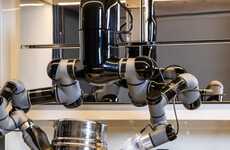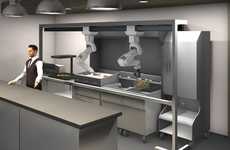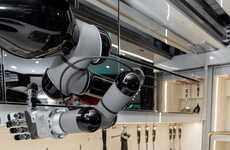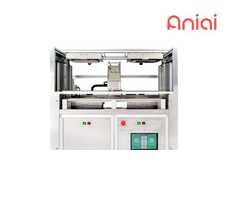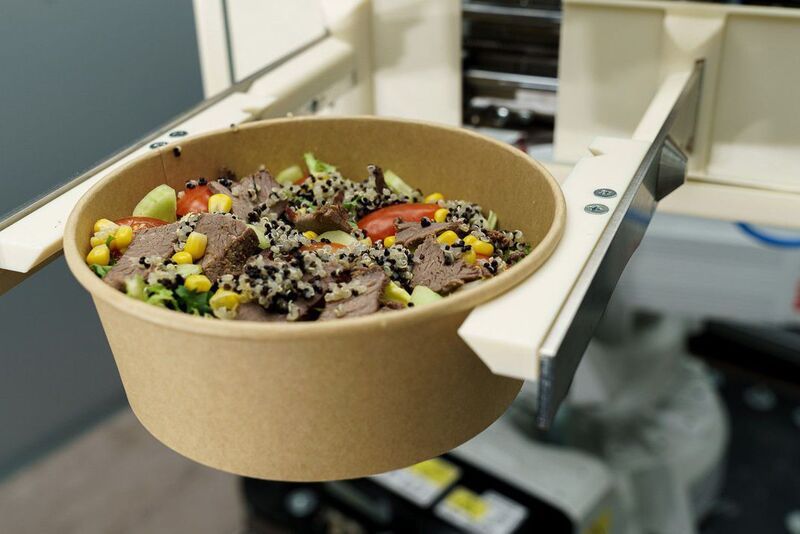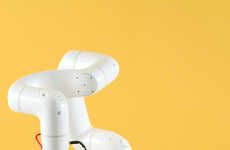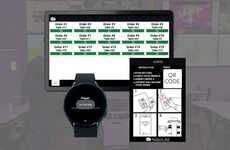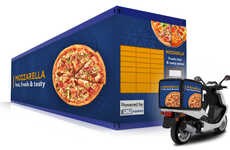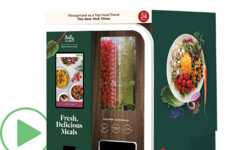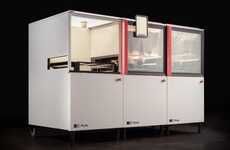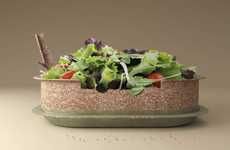
The RoboEatz Could Improve Food Safety Amid and Beyond Covid-19
Grace Mahas — January 14, 2021 — Lifestyle
References: roboeatz & smithsonianmag
RoboEatz, a food-tech startup headquartered in Canada, debuted its new technology in CES 2021. The new food technology offers autonomous operation of end-to-end kitchen tasks from a pre-set list of 80 ingredients making a meal in as little as 30 seconds. The cooking robot offers hot and cold storage, preparation, plating, cleaning, and sanitizing.
RoboEatz was "designed by restaurateurs and aerospace engineers for the food service industry" and can be used in university cafeterias, corporate kitchens, or fast-casual chains. The robotic kitchens system can prepare food dishes that are customizable by taste preferences and dietary restrictions.
Moreover, the use of the autonomous robot could improve food safety by reducing the transmission of COVID-19 and other viruses.
Image Credit: RoboEatz
RoboEatz was "designed by restaurateurs and aerospace engineers for the food service industry" and can be used in university cafeterias, corporate kitchens, or fast-casual chains. The robotic kitchens system can prepare food dishes that are customizable by taste preferences and dietary restrictions.
Moreover, the use of the autonomous robot could improve food safety by reducing the transmission of COVID-19 and other viruses.
Image Credit: RoboEatz
Trend Themes
1. Autonomous Cooking Robots - Autonomous cooking robots are disrupting the food service industry by improving efficiency, reducing labor costs, and offering customizable meals.
2. End-to-end Autonomous Kitchen Tasks - End-to-end autonomous kitchen tasks are revolutionizing the food service industry by streamlining food preparation and reducing the risk of virus transmission.
3. Customizable Meals and Dietary Restrictions - Customizable meals and dietary restrictions are disrupting the food service industry by offering personalized meal options for customers and reducing food waste.
Industry Implications
1. Food Service Industry - The food service industry could benefit from using autonomous cooking robots to improve efficiency and reduce labor costs while minimizing the risk of virus transmission.
2. University and Corporate Cafeterias - University and corporate cafeterias could benefit from using autonomous cooking robots to streamline food preparation and offer customizable meals for their customers.
3. Fast-casual Chains - Fast-casual chains could benefit from using autonomous cooking robots to improve efficiency, reduce labor costs, and offer personalized meal options for customers, leading to increased customer satisfaction and loyalty.
6.9
Score
Popularity
Activity
Freshness


